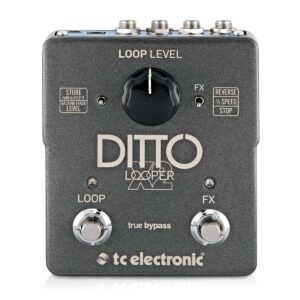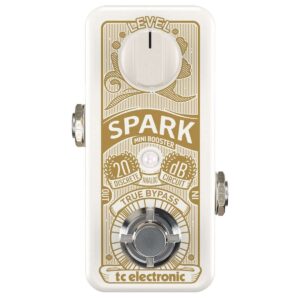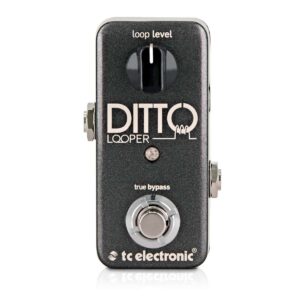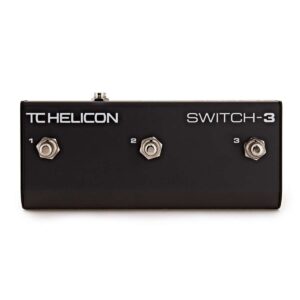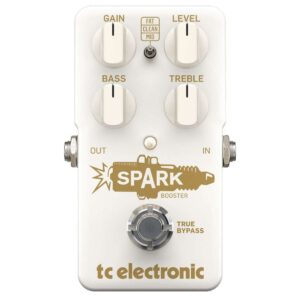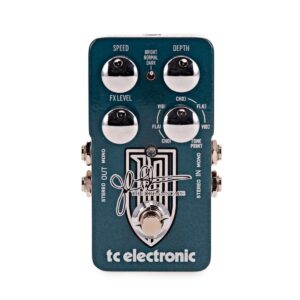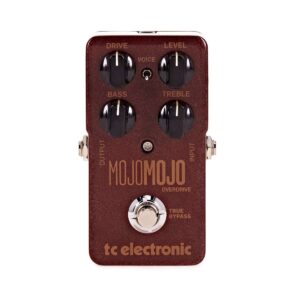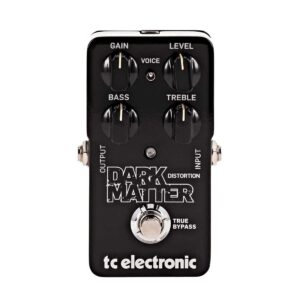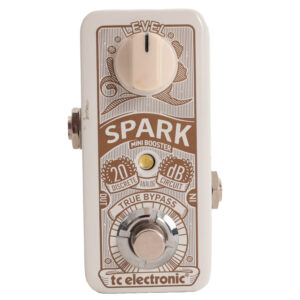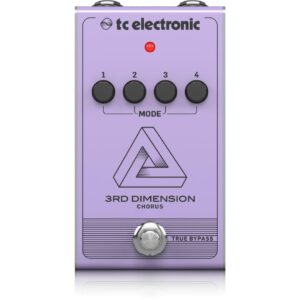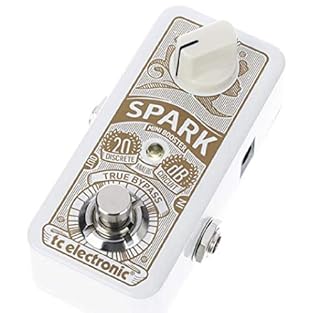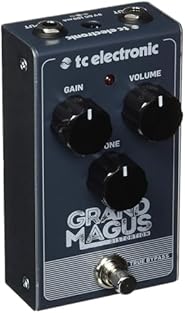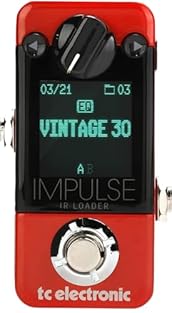Description
The TC Electronic Rusty Fuzz Pedal is in New condition and made by TC Electronic , it is a great Noise Gate EQ Fuzz Guitar Effect Pedal – The TC Electronic Rusty Fuzz is a pedal which provides an affordable yet high-quality fuzz sound for any aspiring or established guitarist. Its equipped with a silicon-based transistor circuit that offers both vintage gated and Velcro-fuzz tones for a highly diverse performance that can be moulded to suit your style. You can benefit from a full range of fuzz tones at the turn of a dial. When you invest in a TC Electronic product you know that every aspect has been designed and manufactured with passion and care – and this one is no different. Built with a true bypass which retains your signals integrity for a consistently clear tone that means you can focus on your performance. Its roadworthy construction and top-mounted jacks provide you with a durable unit that will sit well on any pedalboard. . Available from Just Pedals for only £ 40 Simple to use fuzz pedal The TC Electronic Rusty Fuzz is inspired by the silicon Fuzz face circuits of the late 1960s which supplied legends like Hendrix with his iconic sound. Equipped with a silicon-based transistor circuit the Rust Fuzz provides you with vintage gated and velcro fuzz tones that youve never heard before – and will add superb texture to any performance. Unlike other fuzz pedals the Rusty Fuzz stays true to its classic tone and with its true bypass circuit you can retain your true tone when the pedals not in use. Compact & gig-worthy design The TC Electronic Rusty Fuzz is not only loaded with a wealth of tonal capabilities but also comes complete with a highly durable metal chassis designed to protect the internal components against moisture and the day-to-day life of a gigging musician. Whats more the pedal is equipped with top-mounted jack ports maximising the amount of space youll have left free on your pedalboard so you can expand your rig further. Each control knob is fitted with rugged edges allowing you to control the settings with your foot during performances for an enhanced control while you play. The intuitive control layout offers a user-friendly operation that is perfect for guitarists of any skill level or ability. Specifications Controls: Fuzz Volume Tone Input: 1/4″ TS Unbalanced Input Impedance: More than 800 K Ohms Output: 1/4″ TS Unbalanced Output Impedance: 1 K Ohm Power Input: Standard 9 V DC centre negative more than 100 mA Battery Option: Internal 9 V battery connector Current Consumption: Less than 15 mADimensions Height: 58 mm Width: 74 mm Depth: 132 mm Weight: 0.5kg Please Note: Pedal does not come with a power supply.

